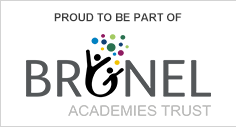Antibullying Strategy Statement
The Anti-bullying strategy statement is an accompanying statement to go alongside The Chalet School Anti-bullying policy (the procedures)
Please click here to view The Chalet School Anti-bullying Policy.
Anti-bullying Strategy Statement
At The Chalet School we recognise that bullying happens, and that it could happen here. Bullying is not acceptable, no matter what form it takes and we will address concerns as they arise. The negative impact of bullying can be lifelong as well as impacting on short term outcomes and engagement and attendance.
To help our pupils understand what bullying is, why is it shouldn’t happen and how to deal with situations of bullying as they arise, we believe we need to educate our pupils well. They need to know what the different types of bullying are and be confident in reporting their concerns to staff and know that their concerns will be heard and acted upon. In turn our staff need to know what to do when a pupil raises a concern and how to report it so that appropriate help and support can be provided to the pupil.
We also as an organisation need to understand the scale of the problem in our setting, the nature of any bullying that occurs and have in place an agreed approach to dealing with it which is understood by all staff. The approach and steps we take to addressing bullying as we discover it is contained in our Safeguarding and Anti-bullying Policy. Our approach to helping pupils understand bullying is found within our PSHE and SRE curriculum policies and Curriculum Long Term Plan.
Our strategy to educate pupils about bullying
Our curriculum provides all pupils with specific content related to the types and signs of bullying in accordance to their age and stage of development. Dedicated lessons give pupils opportunities to learn and test out their understanding about behaviours that are unkind and constitute bullying. They are also provided with information about how to report unkind behaviours including bullying to a trusted adult.
Our school also gives pupils opportunities to gain information about bullying and for leaders to ensure that conversations about bullying happen regularly. We do this through:
-Anti-Bullying Week
-Safer Internet Day
-Stay Safe Week incl. NSPCC Pants Campaign
-Annual UKS2 Feeling Safe Questionnaire
How we find out the scale of the issues and monitor bullying
Our staff reporting system called IRIS Adapt, is a vehicle for all staff to record bullying concerns as they arise, and they are trained to do so at induction and through ongoing refresher training.
Reporting and Oversight
Leaders reflect on all safeguarding and bullying matters routinely in their safeguarding meetings and draw upon behaviour data to identify risk and put an action plan in place swiftly. The Headteacher will then formally report on the types, frequency and severity of bullying at the local governor committee meetings.










